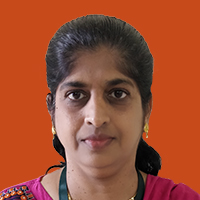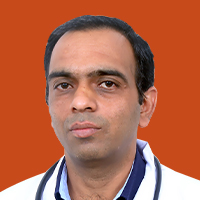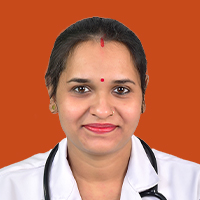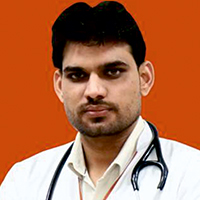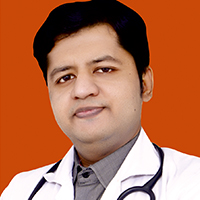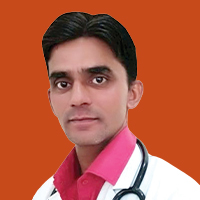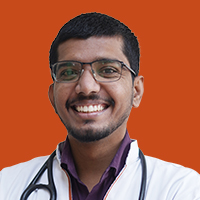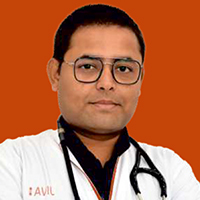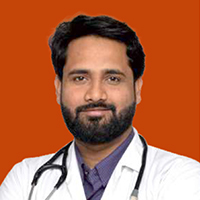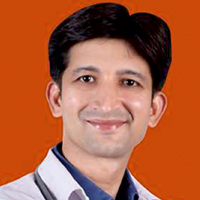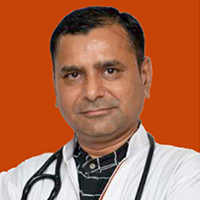

Successful Treatments
Clinics
Doctors
What is Cerebral Palsy?
Cerebral Palsy (CP) is a condition that affects how your muscles function. It makes your movements stiff, shaky, or uncoordinated. It generally happens due to damage to your brain prior to, during or shortly after birth. This damage impacts how your brain controls muscle movement. Based on how serious the condition is, you might have difficulty walking, speaking or even performing daily activities.
What does Ayurveda Say About Cerebral Palsy?
In Ayurveda, Cerebral Palsy is considered a disorder based on Vata dosha imbalance, which impacts your nervous system and movement. Vata disturbances including trauma, inadequate nutrition, birth complications or toxin build up can result in poor communication between your brain and muscles.
Ayurveda also states that obstructions (Avarana) in the body could intensify this condition. For instance, if your Kapha (which gives structure and lubrication) prevents Vata flow naturally, this causes spasticity or muscle stiffness. Any injury to vital points in the brain (Marma) may also result in movement issues like CP.
In Ayurvedic terminology, it isn't just about controlling symptoms, but about balancing your doshas, nourishing your muscles and brain, and flushing toxins out which hinder normal functioning. This is why cerebral palsy treatment in Ayurveda includes therapies like oil massages (Abhyanga), detox (Panchakarma), herbal medications and a customised diet to improve your body.
If you want a gentle, long term solution to support your child’s development, Ayurveda might be suitable for you.
Types Of Cerebral Palsy
CP doesn’t affect everyone equally and symptoms can vary based on which part of the brain is affected and how serious the damage is. Understanding the types of Cerebral Palsy can help you manage this condition and select the proper treatment for your child or family member.
These are the different types of cerebral palsy:
1. Spastic Cerebral Palsy: The most common type is spastic cerebral palsy. If your kid has this, their muscles might feel tight or stiff and it might be hard to move their legs or arms readily. Movements may be jerky or rigid.
Ayurvedic treatment of Cerebral Palsy focuses on reducing muscle stiffness through oil massages, steam therapies and herbal medicines to calm Vata dosha.
2. Dyskinetic Cerebral Palsy: In this type, your child may have difficulty controlling his muscles. Their movements may be slow or writhing or quick and unpredictable. It may affect their face, arms, and legs and make sitting or speaking difficult.
Ayurvedic medicines for Cerebral Palsy like Brahmi and Shankhpushpi calm the nervous system and improve control over body movements.
3. Mixed Cerebral Palsy: Some children have both spastic and dyskinetic CP, which means they may have stiffness and uncontrolled movements. This is called mixed CP.
Both these aspects, i.e., improving flexibility and motor control are addressed jointly through Ayurveda through various therapies and herbs.
4. Based on the Body Part Affected
Diplegic CP: Mostly affects the legs.
Quadriplegic CP: All four limbs affected.
Hemiplegic CP: One side of the body affected.
Monoplegic CP: Only affects one limb.
Paraplegic CP: Symptoms in both legs (arms unaffected).
Common Causes of Cerebral Palsy
Cerebral Palsy could happen due to a number of reasons before, during or even after birth. The symptoms might surface later but the real cause usually comes from a vital time when the brain was still developing in the infant. The most common causes of cerebral palsy are:
Causes According to Modern Medicine
Premature birth: Babies born too early (particularly before 28 weeks) are at greater risk of CP because of the brain still being underdeveloped.
Low birth weight: The risk is higher if your infant is under 1 kg at birth.
Oxygen deprivation at birth (birth asphyxia): This could harm the brain if the infant does not receive sufficient oxygen when delivered.
Infections during pregnancy: Some maternal infections (rubella or toxoplasmosis) can also impede brain development of the infant.
Brain injury after birth: Head injuries from crashes or falls during early childhood could cause CP.
Jaundice & kernicterus: If serious jaundice isn't treated timely, it can harm the brain.
Stroke in the brain of the infant: Blockage or bleeding in the brain before or after birth could result in CP.
Congenital brain malformations: Occasionally, the brain doesn't develop properly in the womb on account of genetic issues or other reasons.
Causes of Cerebral Palsy as per Ayurveda
Ayurveda talks about the causes of cerebral palsy in 3 phases - prior to birth (Garbhakaleen), at birth (Prasavkaleen) & after birth (Prasvottar).
Poor quality of reproductive fluids (Shukra & Shonita) in parents.
- Neglecting antenatal care: Not following a balanced diet & lifestyle during pregnancy.
- Vata-vitiating factors: Like stress, dry or cold foods, or excessive travelling during pregnancy.
- Difficult labour/delivery: Forceps or delayed delivery could cause trauma to essential brain points (Marma).
- Poor neonatal care: Infections, improper feeding, or exposure to toxins.
- Lack of breastfeeding: Ayurveda considers breast milk as ‘Jeevaniya rasa’, which is needed for healthy body and brain development.
Signs & Symptoms of Cerebral Palsy
How cerebral palsy really impacts your child depends on how much damage is done to the brain. Some signs are obvious right away, while others become more prominent as your child grows. Early observation is essential to start the right Ayurvedic treatment of cerebral palsy.
The signs and symptoms of Cerebral Palsy to watch for are:
Movement and Muscle-Related Symptoms
- Stiff or tight muscles (spasticity), making arms or legs hard to move.
- Floppy body posture in early months (low muscle tone or hypotonia).
- Jerky, uncoordinated movements while sitting, crawling or walking.
- Delayed milestones like holding the head up, rolling over or walking.
- Muscle weakness or problems holding objects.
- Trembling hands or uncontrolled movements.
- Muscle spasms or sharp voluntary movements.
- Difficulty with balance or for standing up without support.
Speech and Facial Signs
- Delay in speech development or unclear pronunciation.
- Drooling from poor mouth muscle control.
- Problems chewing or swallowing food.
- Facial muscle stiffness or looseness.
Cognitive and Behavioural Clues
- Irritability or fussiness beyond normal for a child's age.
- Lack of interest in people or surroundings.
- Delayed learning or slow understanding.
- Seizures and epilepsy (in some cases).
Other Physical Signs
- Unusual head size, i.e., either too small (microcephaly) or way too large (macrocephaly).
- One side of the body is weaker than the other.
- Crossed or scissoring legs when lifted or carried.
Not all symptoms appear simultaneously in every child. But if you see any of these signs, get Ayurvedic guidance immediately. Therapies like oil massages, herbal medicines and brain-nourishing practices can help improve mobility, calm the nerves and promote development naturally with cerebral palsy treatment in Ayurveda.
Jiva Ayunique™ Treatment Philosophy - A Holistic Approach to Cerebral Palsy
Jiva Ayurveda offers a holistic approach for Ayurvedic treatment of Cerebral Palsy. The treatment plans are made in a customised way to target the root causes of Cerebral Palsy, and instead of just treating symptoms, they focus on complete and holistic healing, balance and stability in totality.
Core Principles of the Jiva Ayunique™ Treatment Philosophy
HACCP Certified Ayurvedic Medicines: Prepared based on HACCP safety standards, these herbal remedies help to eliminate toxins, speed up healing and promote psychological calmness.
Yoga, Meditation & Mindfulness: Gentle but powerful practices to relax your mind, ease stress, and also improve your well being and energy.
Ayurvedic Therapies: Conventional treatments like Panchakarma, herbal oil massages and body detox to cleanse your system and bring inner balance.
Personalised Diet & Lifestyle Tips: Get expert suggestions on daily routines and foods to develop strength, remain disease free and maintain long term health.
Ayurveda Medicines for Cerebral Palsy
If you want a gentle and natural way to deal with cerebral palsy, Ayurveda offers tried and tested remedies that work with your body’s inner healing power. Cerebral palsy treatment in Ayurveda aims to improve muscle control, nourish the brain, calm the nervous system, and support long-term development. The best part about this treatment is that it's done with safe, child-specific herbs, oils and therapies.
In Ayurvedic healing, there are 3 steps :
Shodhana (Detoxification), Shamana (Balancing Doshas) & Rasayana (Rejuvenation). This three-step strategy is backed by powerful herbal medications and external therapies chosen according to your child's needs and body type (Prakriti).
These are some of the most effective Ayurvedic medicines for cerebral palsy based on conventional Ayurvedic texts and years of medical experience:
Ashwagandha
- An adaptogenic herb which stimulates the muscles and calms the nerves.
- Brings down spasticity and encourages coordination.
- Helps with physical stamina and stress reduction.
Bala (Sida cordifolia)
- A muscle strengthening and revitalising herb.
- Improves mobility and muscle weakness.
- Frequently used in oils and enema therapies (Vasti).
Shankhpushpi
- Increases memory, focus and learning ability.
- Reduces restlessness or hyperactivity.
- Especially useful when your child has cognitive delay.
Brahmi
- A well known brain tonic used for concentration and cognitive enhancement.
- Helps to reduce developmental delays.
- Supports better communication and coordination.
Vacha
- Improves speech clarity and nervous system functioning.
- It's a neuroprotective and memory enhancing herb.
- Commonly used in children who have speech difficulties or who are late to speak.
Nirgundi
- Works as a natural pain reliever and anti-inflammatory herb.
- Used in massage oils to relax stiff muscles and soothe spasms.
- Supports easier movement and flexibility.
Mahanarayan Taila
- A traditional herbal Oil for full-body massage (Abhyanga).
- Reduces joint stiffness and facilitates free movement.
- Increases circulation and muscle relaxation.
Ksheerabala Taila
- A milk-based oil blend to nourish nerves and calm your Vata dosha.
- Used in Anuvasana Vasti (oil enema) for brain-muscle coordination.
- A gentle remedy for children with sensitive systems.
Anu Taila
- Medicated nasal oil for Nasya therapy.
- Clears channels to the brain and balances aggravated Vata.
- Supports speech, focus and mental clarity.
Ayurveda understands that every child is different and hence, every treatment is customised based on individual Prakriti assessment. If you start early and remain consistent, Ayurvedic treatment for cerebral palsy can significantly improve your kid's daily quality of life, motor function and emotional health.
FAQs
1. What is the most effective treatment for cerebral palsy?
There's no particular cure for CP besides early intervention through physiotherapy, speech therapy and Ayurvedic care. Cerebral palsy treatment in Ayurveda uses herbs, oil massages and detox therapies to improve movement, speech and brain strength gently and naturally.
2. Which Ayurvedic medicine is best for kids’ brain development?
Shankhpushpi and Brahmi are two good Ayurvedic herbs for brain development of a child. They have no unwanted side effects and can help boost memory, concentration & learning capacity. They're safe and usually found in herbal tonics or oils for kids.
3. Which is the best vitamin for brain memory in kids?
Vitamins B12, D and omega 3 essential fatty acids are necessary for brain growth and memory of kids. These nutrients are naturally found in ghee, nuts and herbs (Brahmi and Ashwagandha), as a part of a balanced Ayurvedic lifestyle.
4. How can you improve brain power using Ayurveda?
Ayurveda suggests Shankhpushpi, Vacha, and Brahmi for improving brain power. Further, oil massages (Abhyanga), sufficient sleep and a sattvic (fresh and pure) diet contribute to mental clarity, focus and memory.
5. What is the best Ayurvedic brain food?
Ghee, walnuts, soaked almonds, Brahmi and Amla are powerful brain foods as per Ayurveda. They nourish the mind, support memory, and calm the central nervous system.
6. Can Brahmi improve brain power?
Yes, Brahmi is considered among the best Ayurvedic herbs to improve memory, concentration & learning capacity. Also, it calms your mind and can be used for kids with hyperactivity or learning delays. You can use it as a syrup, oil or capsule.
7. Is CP a physical problem only or does it also affect the mind?
Cerebral Palsy affects body movement primarily but can also affect learning capacity, speaking or basic understanding in some children. Not every child with CP has a mental disability but each case is unique and requires personalised Ayurvedic care.
8. Can Ayurveda help prevent Cerebral Palsy in newborns?
Yes, prenatal and pregnancy care are essential aspects in Ayurveda. Following a proper diet, stress-free lifestyle and Garbhini Paricharya (pregnancy care guidelines) can avoid many complications such as poor fetal brain development and Vata imbalance.
9. Is massage safe and helpful for children with CP?
Yes. Ayurvedic oil massages with Bala Taila or Mahanarayan Taila are helpful for CP. They improve muscle tone, blood flow, and brain-body coordination. Also, it helps your child stay calm and content, and more connected with their body.
10. How does detox help control cerebral palsy?
In cerebral palsy treatment in Ayurveda, detox therapies like Vasti (enemas) remove toxins and calm Vata dosha. This clears energy channels, eases stiffness and helps with better absorption of herbs resulting in steady improvement in body functions.
Top Ayurveda Doctors
Our Happy Patients
Social Timeline
Home Remedies
Related Disease
- Ayurvedic Treatment for Ankylosing Spondylitis
- Ayurvedic Treatment For Cervical Spondylosis
- Ayurvedic Treatment For Arthritis
- Ayurvedic Treatment for Osteoarthritis
- Ayurvedic treatment for Gout
- Ayurvedic Treatment for Sciatica
- Ayurvedic Treatment for Rheumatoid Arthritis
- Ayurvedic Treatment for Frozen Shoulder
- Ayurvedic Treatment for Deep Vein Thrombosis (DVT)
- Ayurvedic Treatment for Achilles Tendon Disorders
- Ayurvedic Treatment for Rickets
- Ayurvedic Treatment for Ganglion Cyst
- Ayurvedic Treatment for Osteoporosis
- Get Ayurvedic Treatment for AVN Avascular Necrosis
- Get Ayurvedic Treatment For Osteomyelitis
- Cerebral Palsy Treatment in Ayurveda
Latest Blogs
- Migraine और भोजन का समय: देर से खाना सिरदर्द को क्यों बढ़ा देता है?
- क्या एंटीबायोटिक लेने के बाद पाचन पूरी तरह बिगड़ गया? आयुर्वेद के अनुसार Colitis के उपचार जानें
- अगर मामूली आहार भी पाचन तंत्र सहन न कर पाए तो Colitis को हल्का क्यों नहीं मानना चाहिए? आयुर्वेदिक दृष्टि से जानें
- लंबे समय से सक्रिय Colitis क्यों शरीर की रिकवरी क्षमता को कमज़ोर कर देती है? आयुर्वेदिक नज़र से जानें
- नॉर्मल एंडोस्कोपी, नॉर्मल रिपोर्ट्स… फिर भी रोज़ दर्द—IBS में गलत इलाज कैसे बीमारी को Chronic बना देता है! आयुर्वेदिक उपचार समझें
- क्या बाहर का खाना या मसालेदार भोजन आपके IBS को तुरंत ट्रिगर कर देता है? आयुर्वेदिक दृष्टि से समझें और कब Ayurvedic doctor से मिलना चाहिए जानें
- IBS में दवाइयाँ काम क्यों नहीं करतीं? आयुर्वेदिक कारण और उपचार समझें
- कभी कब्ज़, कभी दस्त: यह सिर्फ पाचन नहीं, पूरे सिस्टम का असंतुलन हो सकता है! जानें कब Ayurvedic doctor से मिलना ज़रूरी हो जाता है
- क्या सर्दियों में दवाइयों के बावजूद साँस पूरी नहीं खुलती? अस्थमा की जड़ आयुर्वेद से समझें
- क्या धूल, धुआँ या परफ्यूम से तुरंत साँस लेने में तकलीफ़ होती है? Asthma के ट्रिगर आयुर्वेद की नज़र से समझें
- सर्दियों में अस्थमा क्यों ज़्यादा बिगड़ जाता है? ठंडी हवा और कफ-वृद्धि का आयुर्वेदिक कारण जानें
- क्या ठंडी हवा लगते ही सीने में जकड़न और साँस लेने में परेशानी होती है? अस्थमा को आयुर्वेद की नज़र से जानें
- क्या सुबह उठते ही बलगम के साथ खाँसी आना अस्थमा का संकेत है? आयुर्वेद से समझें
- क्या लंबे समय तक लैक्सेटिव का उपयोग आपकी कब्ज़ को और जटिल बना रहा है? आयुर्वेदिक समाधान जानें
- क्या गैस, पेट फूलना और सिरदर्द का साथ में होना Chronic Constipation का क्लासिक पैटर्न है? आयुर्वेदिक व्याख्या समझें
- क्या सुबह नींद खुलते ही पेट साफ न होना ‘धीमी अग्नि’ का संकेत है? दीर्घकालिक कब्ज़ में आयुर्वेदिक कारण जानें next topic
- क्या लंबे समय तक बैठकर काम करने से आपकी कब्ज़ लगातार बढ़ रही है? आयुर्वेदिक दृष्टिकोण देखें
- क्या कब्ज़ के चलते आपकी नींद, ऊर्जा और पाचन सब प्रभावित हो रहे हैं? आयुर्वेद में इसके मूल कारण और ज़रूरी उपाय जानें
- क्या तनाव और चिंता भी Chronic Constipation का छुपा हुआ कारण बन सकते हैं? आयुर्वेदिक दृष्टि देखें
- क्या कई दिनों तक कठोर स्टूल बनना और पेट में ऐंठन रहना Chronic Constipation की पहचान है? आयुर्वेदिक संकेत समझें
Ayurvedic Doctor In Top Cities
- Ayurvedic Doctors in Bangalore
- Ayurvedic Doctors in Pune
- Ayurvedic Doctors in Delhi
- Ayurvedic Doctors in Hyderabad
- Ayurvedic Doctors in Indore
- Ayurvedic Doctors in Mumbai
- Ayurvedic Doctors in Lucknow
- Ayurvedic Doctors in Kolkata
- Ayurvedic Doctors in Patna
- Ayurvedic Doctors in Vadodara
- Ayurvedic Doctors in Ahmedabad
- Ayurvedic Doctors in Chandigarh
- Ayurvedic Doctors in Gurugaon
- Ayurvedic Doctors in Jaipur
- Ayurvedic Doctors in Kanpur
- Ayurvedic Doctors in Noida
- Ayurvedic Doctors in Ranchi
- Ayurvedic Doctors in Bhopal
- Ayurvedic Doctors in Ludhiana
- Ayurvedic Doctors in Dehradun



